 W
WThe Pakistan Movement or Tahrik-e-Pakistan was a political movement in the first half of the 20th century that aimed for and succeeded in the creation of the Dominion of Pakistan from the Muslim-majority areas of British India. It was connected to the need for self-determination for Muslims under British rule at the time.
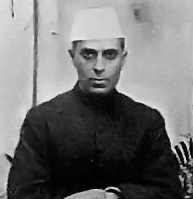 W
WProvincial elections were held in British India in the winter of 1936-37 as mandated by the Government of India Act 1935. Elections were held in eleven provinces - Madras, Central Provinces, Bihar, Orissa, United Provinces, Bombay Presidency, Assam, NWFP, Bengal, Punjab and Sindh.
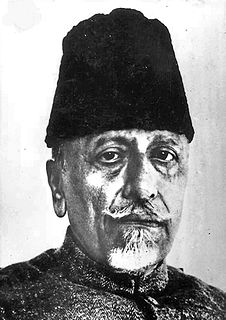 W
WProvincial elections were held in British India in January 1946 to elect members of the legislative councils of British Indian provinces. The consummation of British rule in India were the 1945/1946 elections. As minor political parties were eliminated, the political scene became restricted to the Indian National Congress and the All-India Muslim League who were more antagonised than ever. The Congress, in a repeat of the 1937 elections, won 90 percent of the general non-Muslim seats while the Muslim League won the majority of Muslim seats (87%) in the provinces. Nevertheless, the All India Muslim League verified its claim to be the sole representative of Muslim India. The election laid the path to Pakistan.
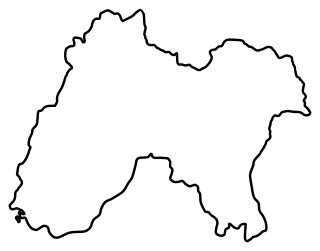 W
WElections to the Punjab Legislative Assembly were held in January 1946 as part of the 1946 Indian provincial elections.
 W
WMoulana Abdul Hamid Qadri Badayuni was a traditional Islamic scholar, Sufi master, poet, and leader from Pakistan. He was the founder of the Islamic college Jamia-Talimat-e-Islamiya located in Karachi.
 W
WThe Founders and activists of the Pakistan Movement, also known as Founding Fathers of Pakistan, were the political leaders and statespersons who participated in the success of the political movement, following the signing of the Pakistan Resolution, that led the establishment and creation of Pakistan on August 1947. Within this large group, a further and extended subset signed the Objective Resolution that was annexed to the Constitution of Pakistan in 1950.
 W
WSir Sultan Mahomed Shah, Aga Khan III was the 48th Imam of the Nizari Ismaili religion. He was one of the founders and the first permanent president of the All-India Muslim League (AIML). His goal was the advancement of Muslim agendas and protection of Muslim rights in India. The League, until the late 1930s, was not a large organisation but represented the landed and commercial Muslim interests of the British-ruled 'United Provinces'. He shared Sir Syed Ahmad Khan's belief that Muslims should first build up their social capital through advanced education before engaging in politics. Aga Khan called on the British Raj to consider Muslims to be a separate nation within India, the so-called 'Two Nation Theory'. Even after he resigned as president of the AIML in 1912, he still exerted major influence on its policies and agendas. He was nominated to represent India to the League of Nations in 1932 and served as President of the League of Nations from 1937–38.
 W
WAligarh Muslim University is a premier central university in Aligarh, India, which was originally established by Sir Syed Ahmad Khan as the Muhammadan Anglo-Oriental College in 1875. Muhammadan Anglo-Oriental College became Aligarh Muslim University in 1920, following the Aligarh Muslim University Act. It has three off-campus centres in Malappuram (Kerala), AMU Murshidabad centre, and Kishanganj Centre (Bihar).
 W
WThe All India Jamhur Muslim League was formed in 1940, to counter the Lahore resolution, passed by the All-India Muslim League, for a separate Pakistan based on Muhammad Ali Jinnah's Two nation theory.
 W
WThe Allahabad Address was a speech by Indian born scholar Sir Muhammad Iqbal, one of the best-known in Pakistan history. It was delivered by Iqbal during the 25th annual session of the All-India Muslim League, on the afternoon of Monday, 29 December 1930, at Allahabad, British India. In this address Iqbal outlined a vision of an independent state for Muslim-majority provinces in northwestern India, thus becoming the first politician to articulate what would become known as the Two-nation theory—that Muslims are a distinct nation and thus deserve political independence from other regions and communities of India.
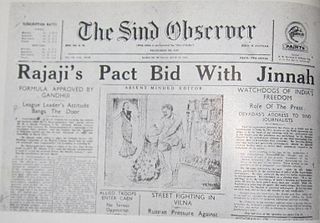 W
WC. Rajagopalachari's formula was a proposal formulated by Chakravarti Rajagopalachari to solve the political deadlock between the All India Muslim League and the Indian National Congress on the independence of British India. The League's position was that the Muslims and Hindus of British India were of two separate nations and hence the Muslims had the right to their own nation. The Congress, which included both Hindu and Muslim members, was opposed to the idea of partitioning India. With the advent of the Second World War the British administration required both parties to agree so that Indian help could be sought for the war effort.
 W
WThe Constituent Assembly of Pakistan, was formed to write Pakistan's constitution and serve as its first parliament.
 W
WDawn is Pakistan's oldest English-language newspaper and is the country's newspaper of record. It is one of the country's three largest English-language dailies and the flagship of the Dawn Group of Newspapers. Dawn is published by Pakistan Herald Publications, which also owns the magazine Herald, the information technology magazine Spider, and the advertising marketing and media magazine Aurora.
 W
WDirect Action Day, also known as the 1946 Calcutta Killings, was a day of widespread communal rioting by Muslims in the city of Calcutta in the Bengal province of British India. The day also marked the start of what is known as The Week of the Long Knives.
 W
WThe East Pakistan Renaissance Society was a political organisation formed to articulate and promote culturally and intellectually the idea for a separate Muslim state for Indian Muslims and specifically for the Muslims of Bengal. The organisation's founders and leaders included Abul Kalam Shamsuddin, the society president, Habibullah Bahar Chowdhury and Mujibur Rahman Khan.
 W
WSir Abdul Halim Khan Ghuznavi, was a politician, zamindar, and industrialist. He was a member of the Central Legislative Assembly of British India.
 W
WThe Hindi–Urdu controversy arose in 19th century colonial India out of the debate over whether the Hindi or Urdu languages should be chosen as a national language.
 W
WThe history of Pakistan encompasses the region of the Indus Valley, which spans the western expanse of the Indian subcontinent and the eastern Iranian plateau. The region served both as the fertile ground of a major civilisation and as the gateway of South Asia to Central Asia and the Near East.
 W
WThe History of the Supreme Court of Pakistan, organised by the Chief Justice of Pakistan, follows from its constitutional establishment in 1947 till its recent events. The Supreme Court of Pakistan is the highest appellate court of the country and court of last resort— the final arbiter of the law and the Constitution.
 W
WIndependence Day, observed annually on 14 August, is a national holiday in Pakistan. It commemorates the day when Pakistan achieved independence and was declared a sovereign state following the end of the British Raj in 1947. Pakistan came into existence as a result of the Pakistan Movement, which aimed for the creation of an independent Muslim state in the north-western regions of British India via partition. The movement was led by the All-India Muslim League under the leadership of Muhammad Ali Jinnah. The event was brought forth by the Indian Independence Act 1947 under which the British Raj gave independence to the Dominion of Pakistan which comprised West Pakistan and East Pakistan. In the Islamic calendar, the day of independence coincided with Ramadan 27, the eve of which, being Laylat al-Qadr, is regarded as sacred by Muslims. The main Independence Day ceremony takes place in Islamabad, where the national flag is hoisted at the Presidential and Parliament buildings. It is followed by the national anthem and live televised speeches by leaders. Usual celebratory events and festivities for the day include flag-raising ceremonies, parades, cultural events, and the playing of patriotic songs. A number of award ceremonies are often held on this day, and Pakistanis hoist the national flag atop their homes or display it prominently on their vehicles and attire.
 W
WMuslim nationalism in South Asia is the political and cultural expression of nationalism, founded upon the religious tenets and identity of Islam, of the Muslims of South Asia.
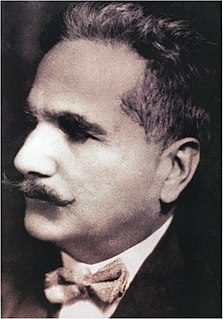 W
WSir Muhammad Iqbal was a Muslim poet, philosopher and politician from Punjab, British India, whose poetry in Urdu and Persian is considered to be among the greatest of the modern era, and whose vision of an independent state for the Muslims of British India was to inspire the creation of Pakistan. He is commonly referred to as Allama Iqbal
 W
WAl-Islah was an Urdu language official weekly newspaper of the Khaksar movement. It was started in 1934 by the founder of the movement, Allama Mashriqi and continued until it was banned 1947. It was printed and distributed from Lahore, India, and contained Mashriqi's speeches as well as articles that reflected the philosophy and ideology of the Khaksar movement.
 W
WThe Khaksar movement was a social movement based in Lahore, Punjab, British India, established by Allama Mashriqi in 1931, with the aim of freeing India from the rule of the British Empire and establish a Hindu-Muslim government in India. The membership of the Khaksar movement was open to everyone and had no membership fee regardless of the person's religion, race and caste or social status. The emphasis was on the brotherhood of mankind and being inclusive for all people.
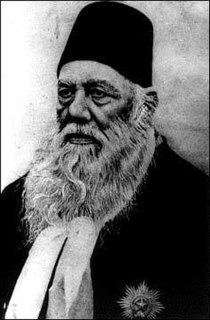 W
WSir Syed Ahmed Taqvi bin Syed Muhammad Muttaqi KCSI, commonly known as Sir Syed Ahmed Khan, was an Islamic pragmatist, Islamic reformer, and philosopher of nineteenth century British India. He is considered as the pioneer of Muslim nationalism in India. Born into a family with strong debts to the Mughal court, Ahmed studied the Quran and Sciences within the court. He was awarded an honorary LLD from the University of Edinburgh in 1889.
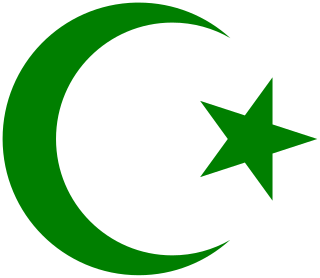 W
WThe Khilafat movement, also known as the Indian Muslim movement (1919–24), was a pan-Islamist political protest campaign launched by Muslims of British India led by Shaukat Ali, Maulana Mohammad Ali Jauhar, Hakim Ajmal Khan, and Abul Kalam Azad to restore the caliph of the Ottoman Caliphate, who was considered the leader of Sunni Muslims, as an effective political authority. It was a protest against the sanctions placed on the caliph and the Ottoman Empire after the First World War by the Treaty of Sèvres.
 W
WThe Lahore Resolution, was written and prepared by Muhammad Zafarullah Khan and was presented by A. K. Fazlul Huq, the Prime Minister of Bengal, was a formal political statement adopted by the All-India Muslim League on the occasion of its three-day general session in Lahore on 22–24 March 1940. The resolution called for independent states as seen by the statement:That geographically contiguous units are demarcated regions which should be constituted, with such territorial readjustments as may be necessary that the areas in which the Muslims are numerically in a majority as in the North Western and Eastern Zones of (British) India should be grouped to constitute ‘independent states’ in which the constituent units should be autonomous and sovereign.
 W
WAdmiral of the Fleet Louis Francis Albert Victor Nicholas Mountbatten, 1st Earl Mountbatten of Burma, was a British Royal Navy officer and statesman, an uncle of Prince Philip, Duke of Edinburgh, and second cousin once removed of Queen Elizabeth II. During the Second World War, he was Supreme Allied Commander, South East Asia Command (1943–1946). He was the last Viceroy of India (1947) and the first governor-general of independent India (1947–1948).
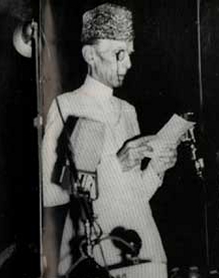 W
WMuhammad Ali Jinnah's 11 August Speech is a speech made by Muhammad Ali Jinnah, founding father of Pakistan and known as Quaid-e-Azam to the Constituent Assembly of Pakistan. While Pakistan was created as a result of what could be described as Indian Muslim nationalism, Jinnah was once an ambassador of Hindu-Muslim unity. When the Partition of India finally occurred, Jinnah, soon-to-be Governor-General of the Dominion of Pakistan, outlined his vision of Pakistan in an address to the Constituent Assembly, delivered on 11 August 1947. He spoke of an inclusive and impartial government, religious freedom, rule of law and equality for all.
 W
WThe All-India Muslim League was a political party established in 1906 in British India. Its strong advocacy for the establishment of a separate Muslim-majority nation-state, Pakistan, successfully led to the partition of India in 1947 by the British Empire.
 W
WThe Objectives Resolution was adopted by the Constituent Assembly of Pakistan on March 12, 1949. Prime Minister, Liaquat Ali Khan, had presented it in the assembly on March 7, 1949. Out of 75 members of the assembly, 21 voted for it. All the amendments proposed by minority members were rejected. Consequently, all ten of them voted against it.
 W
WPakistan Day or Pakistan Resolution Day, also Republic Day, is a national holiday in Pakistan commemorating the Lahore Resolution passed on 23 March 1940 and the adoption of the first constitution of Pakistan during the transition of the Dominion of Pakistan to the Islamic Republic of Pakistan on 23 March 1956 making Pakistan the world's first Islamic republic. A Republic Day parade by the armed forces is often part of the celebrations.
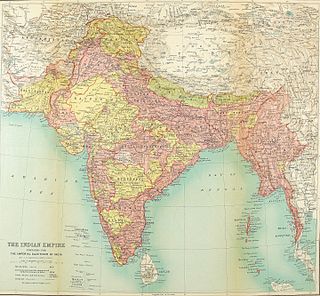 W
WThe "Pakistan Declaration" was a pamphlet written and published by Choudhary Rahmat Ali, on 28 January 1933, in which the word Pakstan was used for the first time and was circulated to the delegates of the Third Round Table Conference in 1932.
 W
WThe Partition of India of 1947 was the division of British India into two independent dominion states, India and Pakistan. The Dominion of India is today the Republic of India; the Dominion of Pakistan is today the Islamic Republic of Pakistan and the People's Republic of Bangladesh. The partition involved the division of two provinces, Bengal and Punjab, based on district-wise non-Muslim or Muslim majorities. The partition also saw the division of the British Indian Army, the Royal Indian Navy, the Indian Civil Service, the railways, and the central treasury. The partition was outlined in the Indian Independence Act 1947 and resulted in the dissolution of the British Raj, or Crown rule in India. The two self-governing countries of India and Pakistan legally came into existence at midnight on 15 August 1947.
 W
WThe massacre at the Qissa Khwani Bazaar in Peshawar, British India on 23 April 1930 was one of the defining moments of the independence movement in British India. It was the first major confrontation between British troops and demonstrators in the city, belonging to Abdul Ghaffar Khan's non-violent Khudai Khidmatgar movement against the British Indian government. Estimates at the time put the death toll from the shooting at between the official count at 20, and the figure of 400 dead put forth by Pakistani and Indian sources. The gunning down of unarmed people triggered protests across British India and catapulted the newly formed Khudai Khidmatgar movement into prominence.
 W
WThe Radcliffe Line was the boundary demarcation line between the Indian and Pakistani portions of the Punjab and Bengal provinces of British India. It was named after its architect, Sir Cyril Radcliffe, who, as the joint chairman of the two boundary commissions for the two provinces, received the responsibility to equitably divide 175,000 square miles (450,000 km2) of territory with 88 million people.
 W
WMumtaz Shahnawaz (1912–1948) was a Pakistani diplomat and writer.
 W
WA Short History of Pakistan is an edited book published by University of Karachi Press and comprises four volumes. The book is edited by Prof Ishtiaq Hussain Qureshi and provides a comprehensive account of the history of the Pakistan region and its people from the prehistory leading to the creation of Pakistan and East Pakistan which then became Bangladesh. Complete set of four volumes are sequentially titled as, Book One: Pre-Muslim Period by Ahmad Hasan Dani; Book Two: Muslim Rule under the Sultans by M. Kabir; Book Three: The Mughul Empire by Sh. A. Rashid; and, Book Four: Alien Rule and the Rise of Muslim Nationalism by M. A. Rahim et al.
 W
WThe two-nation theory is the basis of the creation of Pakistan. According to this theory Muslims and Hindus are two separate nations by definition; Muslims have their own customs, religion, and tradition, and from social and moral points of view, Muslims are different from Hindus; and therefore, Muslims should be able to have their own separate homeland in which Islam is the dominant religion, being segregated from Hindus and other non-muslims. The two-nation theory advocated by the All India Muslim League is the founding principle of the Pakistan Movement through the partition of India in 1947.
 W
WUnited Bengal was a proposal to transform Bengal Province into an undivided, sovereign state at the time of Partition of India in 1947. It sought to prevent the division of Bengal on religious grounds. The proposed state was to be called the Free State of Bengal. A confessionalist political system was mooted. The proposal was not put up for a vote. The British government proceeded to partition Bengal in accordance with the Mountbatten Plan and Radcliffe Line.